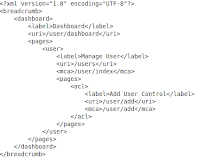Here is a sample code that can used to flash the message.
Step 1: Add message to helper class in controller
$flash = $this->_helper->getHelper('FlashMessenger');
$flash->addMessage(array('success' => 'Posted message saved successfully' ));
Ste 2: Create View Helper to display message in layout
class Custom_View_Helper_FlashMessenger extends Zend_View_Helper_Abstract
{
public function flashMessenger ($width = null)
{
$flash = Zend_Controller_Action_HelperBroker::getStaticHelper('FlashMessenger');
#for message
$message = array();
if($flash->getCurrentMessages())
{
foreach($flash->getCurrentMessages() as $key => $msg)
{
$message[key($msg)][] = $msg[key($msg)];
}
$flash->clearCurrentMessages();
}
else if($flash->getMessages())
{
foreach($flash->getMessages() as $key => $msg)
{
$message[key($msg)][] = $msg[key($msg)];
}
}
$str_msg = null;
$style = '';
if($width) $style = "style='width:".$width."px'";
if(count($message) > 0)
{
foreach($message as $key => $arr_msg)
{
$key = ($key == 'error')?'errormsg':$key;
$str_msg .= '';
}
}
return $str_msg;
}
public function hasMessage()
{
$flash = Zend_Controller_Action_HelperBroker::getStaticHelper('FlashMessenger');
if($flash->hasMessages() || $flash->hasCurrentMessages())
return true;
else
return false;
}
}
Step 3: Display the message in layout
echo $this->flashMessenger();
Now you can add your falsh message in you any controller and it will display in you layout.
Hope this helps someone.
